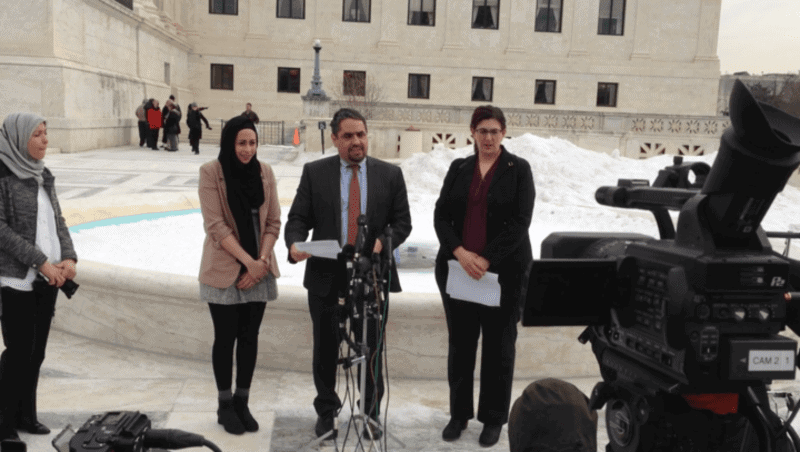
The U.S. Supreme Court has ruled in favor of a Muslim woman whose job application was rejected because she wore a headscarf, siding with arguments made by the Seventh-day Adventist Church in the court’s first religious accommodation case in nearly three decades.
The court ruled 8-1 that clothing store company Abercrombie & Fitch improperly denied Samantha Elauf a job because her hijab violated corporate policy.
The Adventist Church had been concerned that a ruling against Elauf might erode workplace religious freedom rights, including those of Adventists who choose not to work on Saturday, the biblical Sabbath.
“It was a good decision for religious liberty, not just Samantha Elauf, but people of all faiths,” said Todd McFarland, associate general counsel for the Adventist world church. “We are also pleased that the court, in its opinion, relied upon arguments the Adventist Church raised in our amicus brief.”
The church filed an amicus, or friend of the court, brief together with other faith groups in the case of Equal Employment Opportunity Commission v. Abercrombie and Fitch Stores, Inc.
The case stems from a 2008 incident in which Elauf wore the headscarf when applying for a sales position at an Abercrombie & Fitch store in Tulsa, Oklahoma. After a manager confirmed with a supervisor that Elauf’s headwear violated store policy, she was deemed ineligible for hire without discussion of religious accommodation.
The U.S. Equal Employment Opportunity Commission, which filed a lawsuit on Elauf’s behalf, said the move defied Title VII of the Civil Rights Act, which obligates employers to take steps to “reasonably accommodate” a prospective employee’s “religious observance or practice.”
While a federal judge sided with the Equal Employment Opportunity Commission in 2011, the 10th Circuit Court of Appeals in Denver upended that decision last year, saying Elauf never told Abercrombie she needed a religious accommodation even though she was wearing a hijab in the interview.
And that, Adventist legal counselors said, placed undue responsibility on the applicant to determine whether her religious beliefs or practices conflict with company policy.
The church’s amicus brief pointed out that “frequently, an applicant will be unaware of a work-religion conflict simply because of her inferior knowledge of the employer’s work requirements.”
Religious clothing and the observance of Sabbath and other holy days are the most common areas of conflict in the workplace, McFarland said. Hijabs, turbans, yarmulkes, and other head coverings frequently conflict with a company’s dress policy, while Sabbath observance can clash with scheduling.
The Supreme Court said in its June 1 ruling that “religious practice is one of the protected characteristics that cannot be accorded disparate treatment and must be accommodated.”
“An employer may not make an applicant’s religious practice, confirmed or otherwise, a factor in employment decisions,” the court said in the ruling published on its website.
http://www.supremecourt.gov/opinions/14pdf/14-86_p86b.pdf
Abercrombie & Fitch said the court did not determine that it had discriminated against Elauf and that it was considering its next legal steps. But it said it has revised its corporate policy.
“We have made significant enhancements to our store associate policies, including the replacement of the ‘look policy’ with a new dress code that allows associates to be more individualistic; changed our hiring practices to not consider attractiveness; and changed store associates' titles from ‘Model’ to ‘Brand Representative’ to align with their new customer focus,” it said in a statement.
Dwayne Leslie, director of legislative affairs for the Adventist world church, said he was encouraged that the Supreme Court reinforced the importance of religious liberty, and he expressed hope that the decision would lead to additional protections for employees and job applicants.
“As this is the first religious accommodation case to be heard by the Supreme Court in nearly three decades, we were hopeful that this ruling would protect the rights of people of faith in the workplace,” he said. “Therefore, we were pleased to see the court strongly state in the issued opinion that ‘an employer may not make an applicant’s religious practice, confirmed or otherwise, a factor in employment decisions.’”